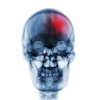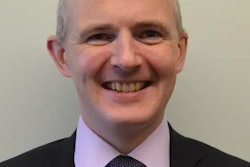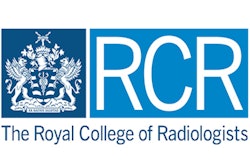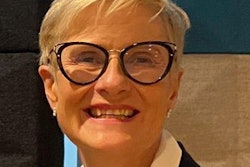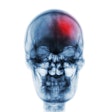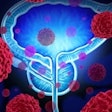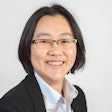
The U.K. Royal College of Radiologists (RCR) is gearing up to play a greater role in AI assessment and is striving to become more inclusive, accountable, and transparent, according to two senior RCR officers. They also speak openly about how to achieve a work-life balance.
The RCR will have increasing influence on U.K. healthcare policy, Dr. Stephen Harden said in an interview posted on 12 September. "We will continue to uphold the highest standards of patient care in imaging, interventional radiology, and clinical oncology. There will be more face-to-face engagement with members and fellows through regional and national meetings."
The RCR will be more inclusive and our role in AI evaluation and its utility will increase, noted Harden, who is the RCR's vice-president for clinical radiology.
"Accountability, responsibility, and transparency are the cornerstones of good governance, and these are at the heart of the recent changes to modernize the governance of the RCR," he said. "A good leader has integrity, behaves with humility and kindness, and leads by example. They have a clear vision for how things can improve and the courage to ensure it is delivered. I have worked with some inspiring leaders during my career, and I use the fundamental teaching points I have learned from each of them in practice."
The biggest challenge facing radiology right now is workforce shortages, in the face of ever-increasing demand for imaging and interventional radiology, he stated. "It is important for us to ensure professional standards are maintained, expand and fill the training capacity in our specialty, and support the work to improve working conditions so colleagues choose to remain working in the National Health Service (NHS)."
Appeal of radiology
Harden said he was initially attracted to radiology because of the challenge of problem-solving in achieving a diagnosis and working as part of a team to deliver high-quality patient care.
He has been a consultant in cardiothoracic radiology in University Hospital Southampton for almost 20 years, and his clinical practice involves the full range of cardiac and thoracic diagnostic radiology including cardiac MRI and CT, thoracic imaging (including lung cancer screening), and PET/CT, focusing on patients with known or suspected lung cancer.
Southampton is one of the largest acute university NHS hospital trusts in England, serving a wider local population of around 2 million and providing regional services to around 4 million people.
Harden, who is a former president of the British Society of Cardiovascular Imaging, said the most exciting project he's been involved in was when he led a U.K.-wide prospective audit of radiation dose data in cardiac CT. "This brought the cardiac CT community together around radiation dose optimization to improve service quality and patient care. The outcomes were established national standards of practice, standardized radiation dose levels, and equipment modernization, which form the basis of current daily practice."
Shortfall in clinical oncology
In a second interview, Dr. Louise Hanna, RCR's medical director for education and training in clinical oncology, noted that a huge challenge right now is the 15% shortfall in the clinical oncology workforce, and the need to recruit, train, and retain doctors within the specialty.
"We need to be able to deliver an increasing array of innovative treatments in a holistic way that is sustainable. We need to promote our specialty actively and with enthusiasm," said Hanna, who is a consultant clinical oncologist in the Velindre Cancer Centre, a nonsurgical oncology center in Cardiff.
Good governance and leadership mean having a clarity of purpose that ultimately serves patients by supporting the professional practice, education, and wellbeing of members and fellows, she said, adding that accountability is vital, including learning from mistakes.
"I would like to see the RCR leading the conversation in support of safe and effective patient care within our specialties," Hanna said. "This includes exploring where innovations such as AI can contribute to ensure that resources are used in the best way. Integral to all of this is the RCR's continued support of high-quality education and training that is fair to all."
Work-life balance
The ability to work remotely, the pandemic, and the resultant increase in workload have certainly made it harder to balance work and home, she continued.
"When I'm not working, you can often find me up a mountain or in a tent. I grew up in Cumbria where I developed a love of the natural world, and there's no better way to explore it than to don a waterproof coat and a pair of walking boots," Hanna noted. "I'm a regular park runner so, however busy the week has been, I often start the weekend with a 5K run followed by a cup of freshly brewed coffee."
She has climbed the Welsh Three Peaks to raise money for women's cancer. "Reaching the summit of Pen y Fan in the dead of night using head torches was an exhilarating experience," she said.
Outside of work, Harden said his great passion is watching live sport, particularly cricket, and having been on the waiting list for around 20 years, he is now a member of the Marylebone Cricket Club (MCC) in London.
"The ever-increasing demands on our work time mean that getting the balance right is increasingly difficult. However, it is important we continue to protect time outside work and give due priority to the things that make us what we are," he said.



